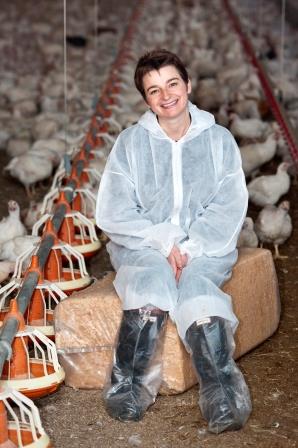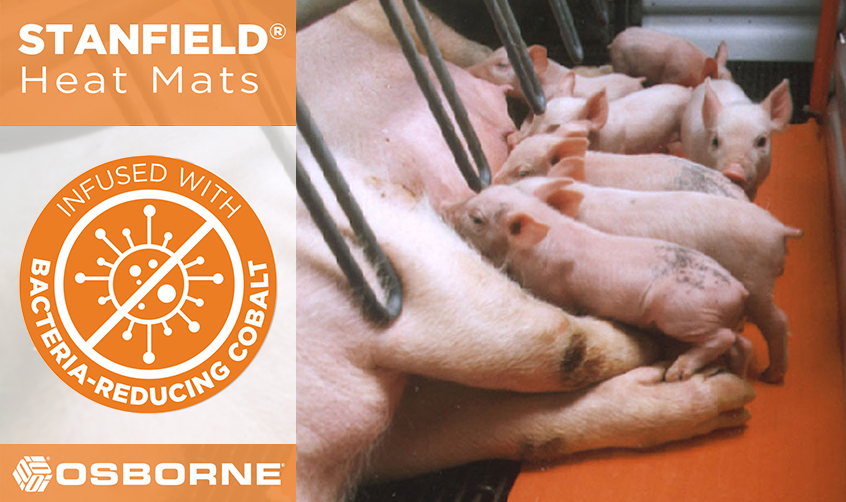



What is Role of Welfare in Livestock Production?
UK - Moves for a total ban on the use of antibiotics in the treatment of animals need to be reined back and vets need to be allowed to use all means available to ensure animal health and welfare.Speaking at the Animal Welfare Foundation Discussion Forum in London in a debate on welfare production and economics in livestock production, pig veterinary consultant, Mark White said that it was the duty of the vet to ensure the health and welfare of animals and to do this it is necessary to have all techniques available.
He warned that while the profession recognised the need to reduce the use of antibiotics, the call to stop using them and race to end their use altogether for treating livestock was unwise.
The pig sector in the UK, he said, has already reduced the use of antibiotics by 40 per cent since 2014 but before their use is ended completely, other techniques have to be established to ensure the welfare of the animals.
He said that vets had to prevent disease and the prophylactic use of medicines to treat them was necessary to prevent suffering.
Dr White said that the use of some medicines had now become a political issue, but this should not overshadow the primary concern of the vet, which is the welfare of animals.

He told the forum that as disease causes suffering and the more advanced the disease the greater the suffering, treatment and prevention of disease is a welfare issue.
However, he said that in the farming industry there are other interests, particularly economic interests, that are also putting pressure on the way animals are treated.
He said that other areas in livestock farming such as environmental considerations, good husbandry and nutrition all need to be addressed in ensuring good welfare.
He said that there is often a dilemma in the pig sector between good hygiene and welfare and he added that there are often environmental problems such as poor buildings and open barns.
Breeding factors, climate, air pollution also have to be considered in ensuring good welfare Dr White said.
“All these factors have an implication on animal health and welfare,” he said.
One of the major challenges in the pig sector for good welfare is that it is involved in continuous production with 90 per cent of the animals as young pigs when they are most vulnerable and susceptible to disease.
D White said that the recent O’Neill report had called for more use of vaccines and he said that vaccines had been a tremendous boon to health control in pigs, but he added “we don’t want to turn pigs into pincushions” with the number of injections for different health concerns.
He said there are immunological, marketing and economic constraints over the use of many vaccines.
He warned that a political agenda was taking over the question of the use of antibiotics and he said that vets need the use of medicines including antibiotics to support other strategies for preventing and controlling disease.

Prof David Main, professor of animal welfare at Bristol University, told the forum that improving welfare in livestock production depends on the system and changes in management.
He said that in some cases welfare issues have been addressed through legislation such as the banning of battery cages for laying hens, but there is now a market focus on animal welfare in livestock production, with the consumer bringing the issues to the retailer and showing its importance through their purchasing power.
Prof Main said that putting the method of production was one way that the welfare message could be conveyed to consumers and he said the British Veterinary Association has been calling for one clear labelling policy for food products other than just eggs.
He said that vets had a role as a communicator to be able to promote welfare initiatives such as the healthy feet policy for livestock and the Assurewel assurance schemes.
He said that vets can help influence policy through a pursuit of a common goal and they can also influence practice through communication.

Sue Lockhart, head of agriculture at the supermarket chain Sainsbury, said that one of the core values from the chain was integrity in sourcing.
“Customers expect quality and they expect Sainsbury’s to deliver great quality. Value and safety are key things,” Ms Lockhart said.
“Budgets are still tight, but there are many things that the customer will not compromise on.”
She said that the “savvy” shopper will read the labels and do research and in surveys of consumers carried out by Sainsbury's, the question of animal health and welfare has always been among the top 10 issues of concern.
However, she said that Sainsbury's has to balance delivering values with something the customer can afford and is willing to pay for.
Consumers are not single issue purchasers, she told the forum.
She said that to meet the consumer demands the supermarket chain works with the farmers and growers to deliver resiliently sourced and sustainable products.
It also ensures that animal health and welfare is one of the priorities while at the same time delivering taste and freshness.
She said that the company ensures that the five freedoms to ensure animal welfare are all part of any assurance scheme with the Red Tractor scheme as the minimum requirement.
Ms Lockhart said that to ensure good health and welfare information was needed to be able to manage production systems and there was also a need to support research and development programmes.
She said it was essential to share knowledge and expertise which included working with farmers and vets and it was also necessary to work collaboratively.
She said Sainsbury's had initiated several welfare programmes including a lameness programme for dairy cattle and flock health plans for lamb, chicken and pigs, which requires collaboration and input from the vets.
She added that the company is also investing in research and development in areas such as farrowing systems for pigs and there are also programmes to gather health and welfare data from farmers, looking at the cost of production and gathering carbon footprint data to improve sustainable production
“Technology will help to take this forward,” she said.
“Sourcing with integrity is in our DNA. Our customers expect it and it makes good business sense.”
Animal Welfare Foundation trustee, who chaired the debate, said: “The responsibility of the meat industry is to produce meat in a responsible and ethical way.”
He concluded: “The best thing for animal welfare and farmers is profit.”








